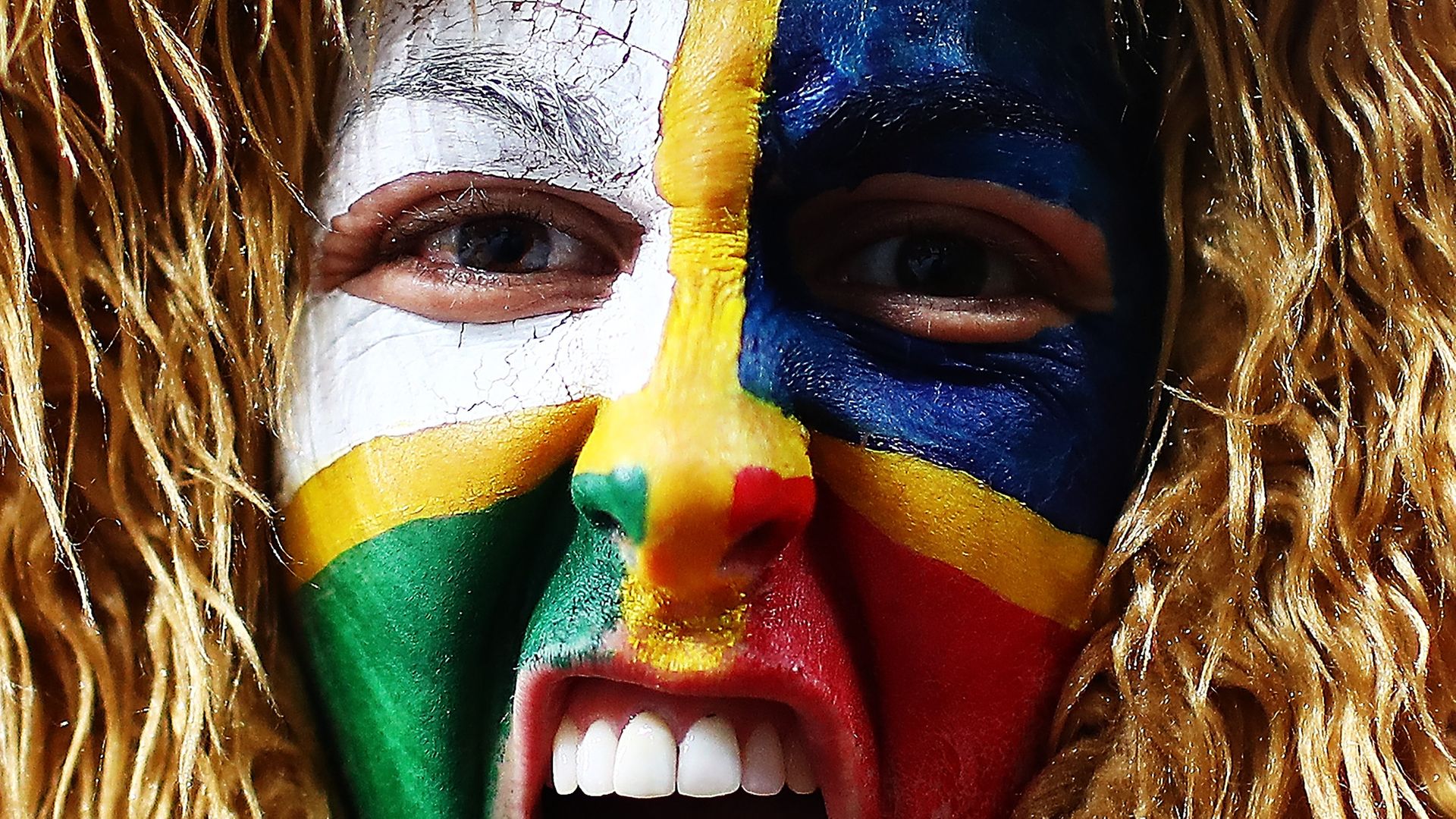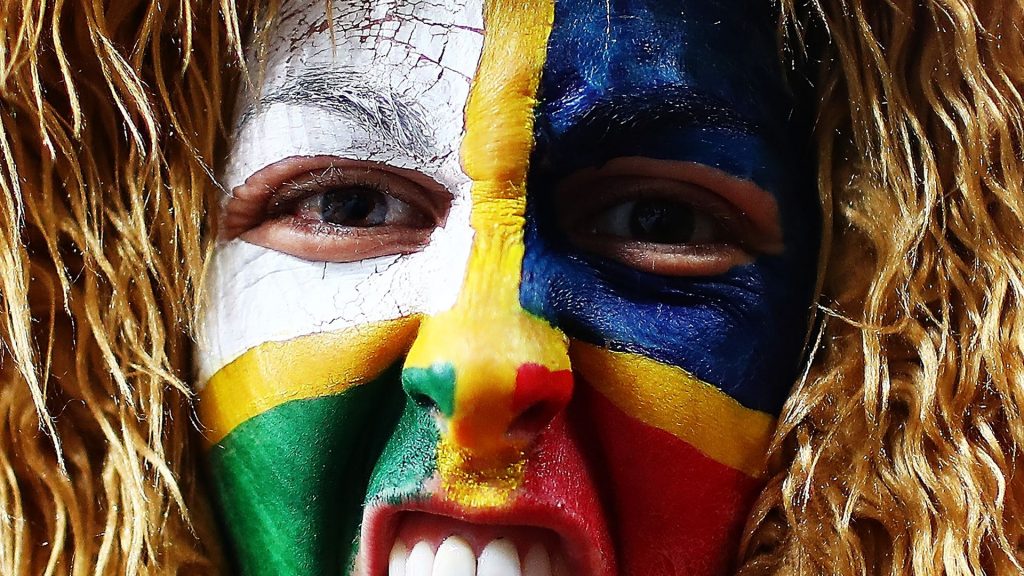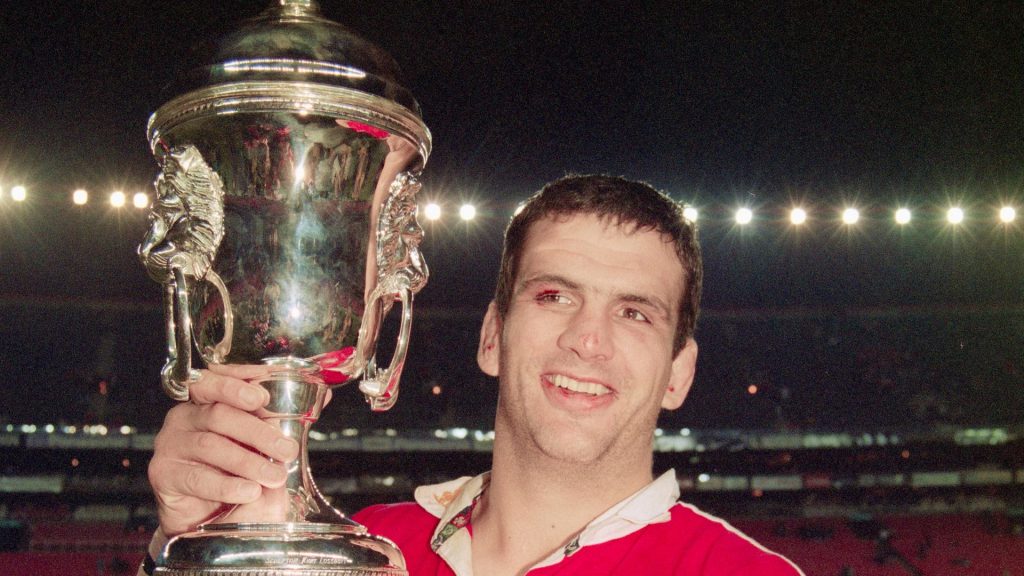
How the best rugby union players from England, Wales, Scotland and Ireland come together to bring unity.
It really shouldn’t work. Every four years, the best rugby union players from England, Wales, Scotland and Ireland are brought together for a couple of months to take on one of the sport’s southern hemisphere giants. New Zealand, Australia, South Africa – with eight World Cup wins between them, they are the most formidable of foes. And while it’s one thing for international sides who play together with some regularity to head over the Equator to earn the odd hard-fought win, it’s quite another for a scratch side to do likewise, especially when three of the sides that comprise the British and Irish Lions can’t stand the fourth.
At least, that’s what you might’ve been led to believe. There certainly has been animosity between the Lions’ constituent countries. Former England captain Will Carling had such a miserable time on the New Zealand tour of 1993, he requested he never again be selected for the side.
That 1993 tour – which saw the Lions lose a tight series 2-1 – also revealed that, while fellow countrymen naturally look out for one another, they’re quite happy to call bullshit on one another if it’s for the good of the Lions. So when a number of Scottish players who were unlikely to figure in the test matches started to treat the tour as a holiday, former Scotland captain and current Lions coach Ian McGeechan had no qualms about making his dissatisfaction with said players public knowledge.
“How you think the Scottish contingent has conducted itself?” enquired a gentlemen of the press. “Gavin Hastings has led the side very well,” McGeechan tersely replied, singling out the team’s skipper while condemning the other seven Scottish squad members via his silence.
The British and Irish Lions, then, isn’t as clique-fraught as you could be forgiven for thinking. In fact, looking exclusively at the Lions’ professional era – which began with the 1997 tour of South Africa – the side has recorded historic series wins over both the Springboks and the Wallabies. And last time around in 2017, Sam Warburton’s men squared a series with the All Blacks, whom the Lions have defeated in a series just once in their 136-year history.
Little wonder that the announcement of coach Warren Gatland’s squad selection on May 6 has attracted so much interest. With renewed independence discussions in Scotland and scenes taking place in Northern Ireland that smack more of the 1970s than the 2020s, it’s not too much of a stretch to suggest that this tour will assume increased significance as again the Lions seize the opportunity to prove that most extraordinary of things – that four countries so often at odds with one another can come together to compete with the best in the world.

It’d be wrong to think of the divisions that have existed between the Home Unions as mere tiffs. In 1972, there was immense ill-feeling among the Irish when both Wales and Scotland refused to honour fixtures in Dublin on account of the Troubles north of the border. Fast forward just two years and a Lions outfit led by Northern Irishman Willie John McBride and jam-packed with Welsh and Scottish union legends like Gareth Edwards and Gordon Brown went to South Africa and didn’t lose a single game – they’d have whitewashed the test series too, except for a controversial refereeing decision in the dying seconds of the final match.
So how do you bring the four entities together? Well, since this year’s tour is to South Africa, let’s take a look at the Lions’ last two visits to that country. On both occasions, the Springboks were the reigning world champions and their opponents were given next to no chance of defeating them.
In fact, my father – who attended the first two tests of the 1997 series – has vivid memories of a towering South African fan insisting that his side would put 40 points on the Lions while queuing up for the Newlands test. And with just eight games scheduled ahead of the first test, coaches Ian McGeechan and Jim Telfer would have little opportunity to develop either the side or a winning mentality.
Their solution? A team-building exercise! Performing tasks that had more in common with It’s A Knockout! than international sport, a squad comprising 18 Englishman (including captain Martin Johnson), three Irishman, eight Welshman and five Scots came away from the weekend with the ice successfully broken and with a collective understanding of what it was the team as a whole wanted to achieve.
And then there were the speeches. As former teachers, McGeechan and Telfer understood how to talk to people. The speech that follows, delivered by McGeechan ahead of the crucial second test, is the equal of anything you’ve seen in sports film. The big difference is that, while, say Al Pacino screams his lungs out in Any Given Sunday, McGeechan never raises his voice, bringing in his audience in rather than blowing them away:
“I’ve given a lot of things up. I love my rugby. And I love my family. And when you come to a day like this, you know why you do it all. You know why you’ve been involved. It’s been a privilege – is a privilege. Because we’re something special.
“You’ll meet each other in the street in 30 years time, and there’ll just be a look, and you’ll know just how special some days in your life are.
“We’ve proved that the lion has claws and has teeth. We’ve wounded a springbok. When an animal is wounded it returns in frenzy. It doesn’t think. It fights for its very existence. The lion waits, and at the right point, it goes for the jugular… Today, every second of that game… we go for the jugular. Every tackle, every pass, every kick, is saying, ‘you’re a fucking springbok, you’re dying. Your hopes of living in this test series are going’. And on that field sometimes today, all it will be between you is a look. No words, just a look. That will say everything. And the biggest thing it will say is, ‘you are special’.
“Go out, enjoy it, remember how you’ve got here, and why. And finish it off. And be special for the rest of your lives.”

Four hours later, the Lions sealed their first series win in South Africa since 1974 – all accomplished by a team comprising a captain who’d never skippered an international team before, a centre – Jeremy Guscott – that England considered surplus to requirements and a fullback – Neil Jenkins – who didn’t let the fact that he’d rarely played in the position prevent him from becoming the series’ top test points scorer.
Twelve years later – and on the back of a disastrous 2005 series that saw the Lions whitewashed by the All Blacks – Ian McGeechan was again recruited to take the side to South Africa. Such was the shoeing the Lions received in the Land of the Long White Cloud – compounded by the side having lost a very winnable series against Australia in 2001 – talk of the Lions having no place in modern sport was heard for the first time since the success of 1997.
To combat this, McGeechan employed strategies similar to those of a dozen years ago. The team met ahead of the tour to stack crates and scale obstacles, a captain, Paul O’Connell, was selected who had more presence than international captaincy experience and the squad featured a range of players who, while they mightn’t have been fixtures in their national sides, could bring the very things to the table that can secure a series win.
England flanker Tom Croft was one such player, his brace of tries in the first test contributing to one of the greatest – albeit ultimately unsuccessful – comebacks in Lions’ history. Then, in the zero-sum game that was the second test, McGeechan dropped World Cup winner Phil Vickery and sent out the first all-Welsh Lions front row since the 1950s. It was undeniably the right thing to do since Springbok newcomer Tendai ‘The Beast’ Mtawarira had savaged the experienced Englishman. And as for the number Adam Jones, Matthew Rees and Gethin Jenkins did on the Boks, it’s summed up by the despicable assault South African lock Bakkies Botha committed on Jones to ensure the Welshman had to be substituted, so robbing his team of this key advantage.
Indeed, so physical was the second test as a whole that it’s most accurately watched in slow-motion accompanied by Barber’s Adagio With Strings. The Lions ended up losing to the last kick of the game, but any question of the side’s honour and/or its relevance had been truly kicked into touch. A resounding 28-9 win in the final test only confirmed that the British & Irish Lions were back, as if they’d ever really been away.
And they’ve continued to go from strength to strength. While McGeechan’s epic contribution to the side might lead you to conclude that the Lions coach must be recruited from the Home Unions, Warren Gatland’s back-to-back successes in Australia and New Zealand are proof positive that this needn’t be the case.
And now the former Waikato hooker is getting set to take on the reigning world champions in their own backyard. Can they win? Sure, even though many of the team have been starved of rugby during this pandemic period and the side’s greatest asset, their immense travelling support, is likely to amount to a stream rather than a sea of red.
However, with -exit currently the suffix du jour, what better evidence is there that separation needn’t be the solution than an outfit whose very existence is founded on the belief that cooperation is essential to global success?









